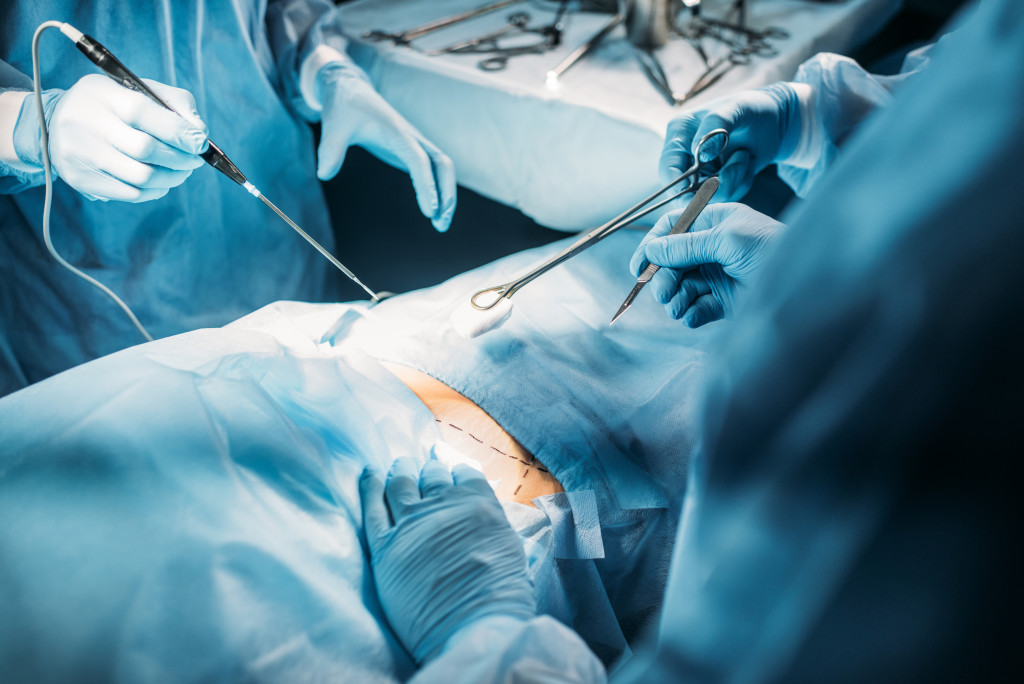- Oral cancer can affect any part of the mouth and is relatively common, with 53,000 diagnoses in the US each year.
- Risk factors include smoking, alcohol consumption, HPV infection, poor oral hygiene, and genetic predisposition.
- Early detection is critical to successful treatment and may involve surgery, radiation therapy, and/or chemotherapy.
- Prevention methods include avoiding smoking and drinking, practicing good oral hygiene, and getting regular checkups and vaccines.
Oral cancer can develop in any part of the mouth, including the lips, tongue, gums, and the lining of the cheeks. While it is not as common as other types of cancer, it can be very dangerous. In fact, according to the Oral Cancer Foundation, around 54,000 people in the US usually have oral cancer annually.
That said, the good news is that oral cancer is highly preventable and treatable, especially when diagnosed early. Here’s what you need to know about oral cancer, its causes and symptoms, how to prevent it, and treatments that can help if you do have it.
What is Oral Cancer?
Oral cancer is an abnormal growth of cells that can develop in any part of the mouth, including the tongue, lips, gums, floor of the mouth, and the lining of the cheeks. It can also occur in the oropharynx, the middle part of the throat, including the tonsils and the back of the tongue.
There are different types of oral cancer, but most cases involve squamous cells, which are the flat, thin cells covering the mouth and throat lining. Squamous cell carcinoma is the most common type of oral cancer. This oral cancer can spread to other body parts if left untreated.
Risk Factors
Oral cancer is a common disease in the U.S., but some people are more susceptible than others. Here are some risk factors for this disease:

Tobacco Use and Smoking
There is a strong relationship between smoking and the development of oral cancer. Tobacco use increases the risk of oral cancer and other types of cancers, such as lung cancer, throat cancer, and bladder cancer. Cigarette smoke contains over 70 known carcinogens that can lead to the development of cancerous cells in the mouth. Additionally, smokeless tobacco, also known as chewing tobacco, is a potent risk factor for oral cancer. So, the first step to reducing your risk factor involves avoiding tobacco and smoking.
Alcohol Consumption
Studies have shown excessive alcohol consumption is a leading cause of oral cancer. Notably, individuals who regularly drink large amounts of alcohol and simultaneously smoke increase their risk of developing oral cancer up to thirty times more than non-drinkers and non-smokers. In addition to drinking in moderation, minimizing alcohol consumption will lower your risk.
Human papillomavirus (HPV)
HPV is a sexually transmitted infection now recognized as a significant risk factor for oral cancer. Accordingly, many young adults are now being diagnosed with oral cancer caused by HPV. Additionally, the overall rise in HPV-related cancers is a cause for concern. The best way to prevent HPV-related cancers is by getting vaccinated.
Poor Oral Hygiene
Poor oral hygiene is a risk factor for various oral conditions such as gum disease, tooth decay, and oral cancer. Studies have shown that individuals with poor dental hygiene or damaged teeth and gums have a higher risk of developing oral cancer. Practicing good oral hygiene, visiting the dentist regularly, and maintaining healthy teeth and gums will mitigate this risk.
Genetic Predisposition
While environmental and lifestyle factors primarily trigger oral cancer, there is also strong evidence that there is a genetic component to it. Genetic predispositions may make some individuals more susceptible to oral cancer than others. In such cases, close and regular monitoring by health professionals will help detect the disease in its early stages if it does develop.
Dealing With Oral Cancer
Anyone can have a risk factor for oral cancer, but it’s essential to understand the symptoms and get regular screenings. Early detection is vital and can significantly improve the chances of successful treatment. Here’s what you should do to deal with oral cancer:

Surgery
Surgery is often the go-to treatment for oral cancer, especially if diagnosed early. Surgery aims to remove as much cancerous tissue as possible while minimizing damage to the surrounding healthy tissue. Depending on the location of the cancerous cells, the surgeon may need to remove part or all of the affected tissue, including the tongue, throat, or jaw. Surgery is often used with radiation therapy and chemotherapy to increase the likelihood of a successful recovery.
Radiation Therapy
Radiation therapy, also known as radiotherapy, is another standard treatment for oral cancer. Radiation therapy involves using high-energy radiation to target cancer cells while minimizing exposure to healthy tissue. The radiation can be delivered externally, from a machine, or internally, by placing radioactive implants. Radiation therapy can also be used with surgery and chemotherapy or as a standalone treatment for oral cancer.
Prevent Periodontitis
To avoid oral cancer, practice good oral hygiene and visit your dentist for regular checkups. Additionally, you should get missing teeth replaced with a teeth replacement service. They can put dental implants and bridges to replace missing teeth.
Oral cancer is a severe condition, so knowing its causes and symptoms is essential. Additionally, treatments available can help if you do have them. To reduce your risk factors, avoid smoking and drinking excessively. Also, practice good oral hygiene and visit the dentist regularly for checkups. Lastly, don’t forget to get vaccines, especially HPV shots. Regular checkups, early detection, and timely treatment can reduce the risk of developing oral cancer and increase your chances of a successful recovery.



